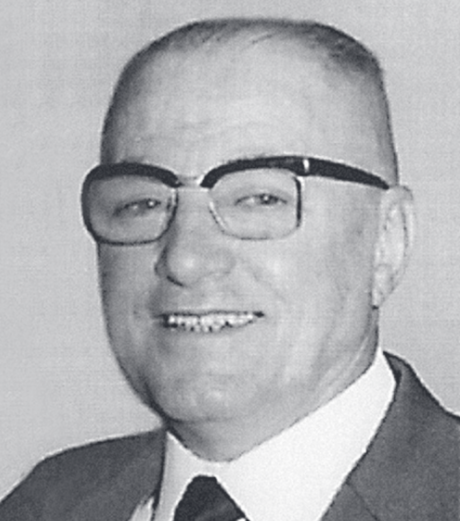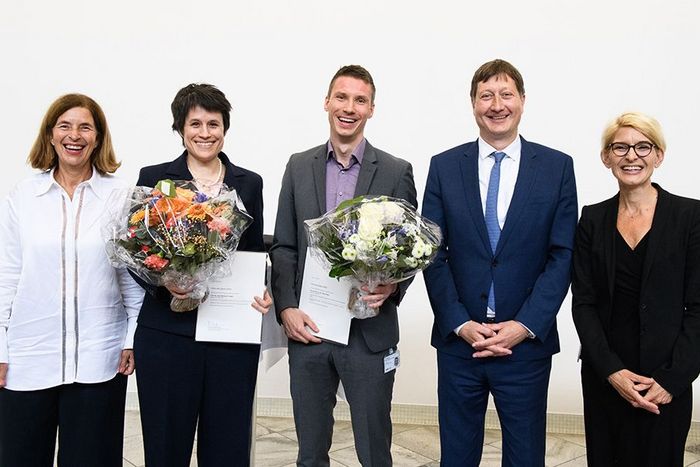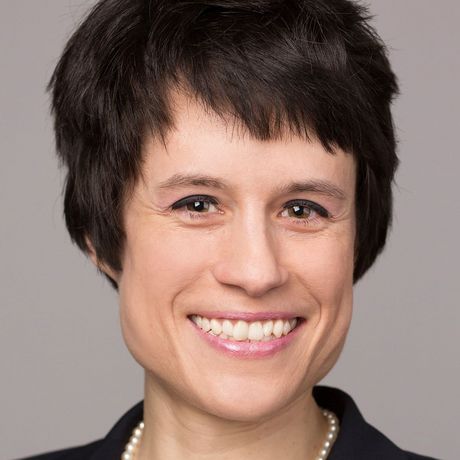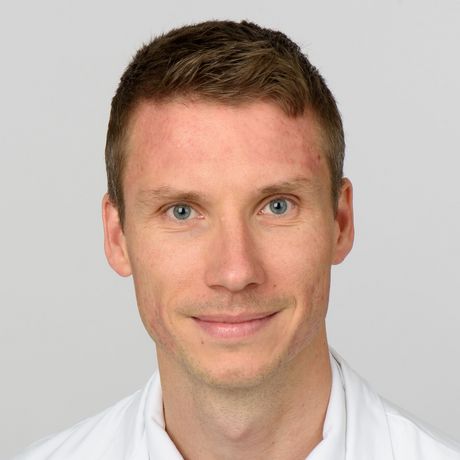The Georg Friedrich Götz Award is presented annually to two researchers who are habilitated at the University of Zurich and can demonstrate outstanding, internationally recognized achievements in the area of basic or clinical research. The award comes with total prize money of CHF 30,000.
The Georg Friedrich Götz Foundation is run as part of the Faculty of Medicine at the University of Zurich (UZH) and is presented annually to two researchers who are habilitated at the University of Zurich and can demonstrate outstanding, internationally recognized achievements in the area of basic or clinical research. And this with a long-standing tradition: Since 1969, the annual Georg Friedrich Götz Award has been awarded to more than 100 researchers in recognition of their work. Since 2019, the UZH Foundation has been in charge of the foundation’s business operations.
The foundation’s founder Georg Friedrich Götz was a successful German entrepreneur, who moved to Switzerland in 1960. He had to travel to Zurich several times for operations, including for lung cancer and for bowel disease. In gratitude for the care he received, he started a foundation at the University of Zurich in 1964 which each year awards a prize for progress in medicine.
Find out more about the life of Georg Friedrich Götz
An English version will be available soon. In the meantime, please consider the German version.

The Georg Friedrich Götz-Prize is presented annually to two researchers who are habilitated at the University of Zurich and can demonstrate outstanding, internationally recognized achievements in the area of basic or clinical research. The award comes with total prize money of CHF 30,000.
The jury comprises the following members:
The advisory board is made up of the following members:


In patients with ST-segment elevation myocardial infarction (STEMI) with multivessel coronary artery disease, the time at which complete revascularization of nonculprit lesions should be performed remains unknown.
We performed an international, open-label, randomized, noninferiority trial at 37 sites in Europe. Patients in a hemodynamically stable condition who had STEMI and multivessel coronary artery disease were randomly assigned to undergo immediate multivessel percutaneous coronary intervention (PCI; immediate group) or PCI of the culprit lesion followed by staged multivessel PCI of nonculprit lesions within 19 to 45 days after the index procedure (staged group). The primary end point was a composite of death from any cause, nonfatal myocardial infarction, stroke, unplanned ischemia-driven revascularization, or hospitalization for heart failure at 1 year after randomization.
The team around Tobias Weiss has investigated a new immunotherapeutic approach for the treatment of glioblastoma based on so-called immunocytokines in experimental glioblastoma models and translated it into the world's first clinical trial for patients with glioblastoma. Immunocytokines are antibody-cytokine fusion proteins that specifically bind to proteins that are present in tumors but not in healthy tissues. This allows a targeted delivery of pro-inflammatory molecules to the tumor site upon intravenous administration to trigger a local anti-tumor immune response.
This study is a prime example of a successful collaboration between academic and industrial research and formed the basis for several preclinical follow-up projects and at least two further clinical trials with immunocytokines in combination with conventional cancer therapies for patients with glioblastoma, which are currently recruiting patients.

Over 100 prizes have already been awarded since the foundation was established. An overview of all previous winners of the Goetz Prize can be downloaded here:
